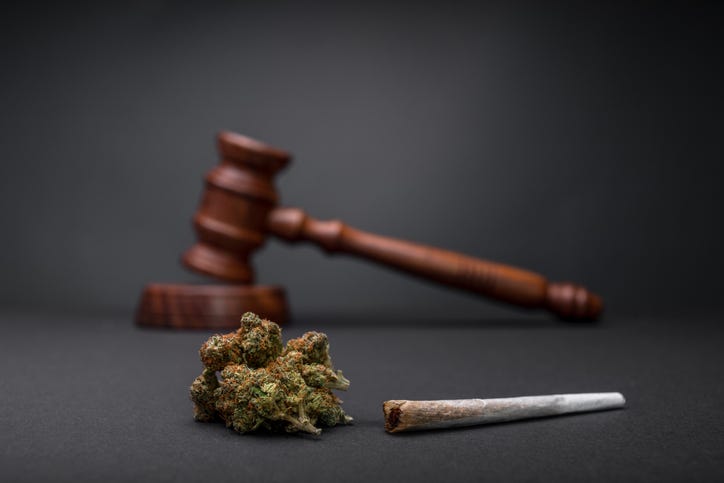
Whether or not marijuana should be legal has been discussed for decades, but what do those for and against legalizing the use of weed have to say in defense of either side?
To discuss both sides, House Majority Leader Ryan Winkler shared why he supports legalizing weed, and Paul Aasen from the Minnesota Safety Council shared why he thinks it shouldn't be legal with News Talk 830 WCCO's Vineeta Sawkar.
Legalize it
There are groups in Minnesota that have asked state legislators to legalize the use of the the drug for recreational use safely. Winkler said that the biggest reason is that the current model for prohibiting the distribution and use of the drug doesn't work.
"We have youth who have easy access to [weed]. It is a product that is widely used in the state," Winkler said. "Our neighboring states are starting to make it legal, and we are using the criminal justice system as a method of arresting and incarcerating people for using a product or selling a product that most people think they should be able to use responsibly."
A common argument made when discussing whether or not the drug should be legalized is that weed is safer to use than alcohol or tobacco.
Winkler acknowledged this, adding that we should regulate it like those products instead of keeping it illegal.
A report by the ACLU in 2020 found that Black people were more than 3.5 times more likely to be arrested for marijuana possession than white people.
"An important part of that statistic is that Black Minnesotans and white Minnesotans consume cannabis at about the same rate," Winkler said. "Those arrest disparities show that the criminal justice system is focussed on cannabis as a way to get to other kinds of crimes."
Winkler said that making the drug legal will help lower incarceration and arrests for "Minnesotans who are disproportionately affected by" weed being illegal.
There is a medical program currently in place in Minnesota, and Winkler said that there is still a need for it, but they would like to continue with both programs for recreational use and medical use.
An argument used against the effort to legalize marijuana comes from employers who say they have no way of detecting those using the drug at work. However, Winkler pointed out they are having the same issue right now.
"A lot of people are using cannabis, they can come to work impaired, and employers are free to have any kind of standard for impairment in the workplace they want, and they would if it's legalized as well," Winkler said. "It doesn't really change that."
When it comes to what Minnesotans think on the issue, Winkler acknowledged that while it is not a top issue with the pandemic and other things going on, it still matters.
Don't legalize it
Aasen is the president of the Minnesota Safety Council, and he said that when it comes to legalizing recreational use of marijuana in the state of Minnesota, his coalition has four primary concerns.
"There are concerns on the road. There are concerns in the workplace. There are concerns about community impact, and then there is kind of a standing public policy and money question that we're all wrangling with," Aasen.
When it comes to the primary concern, Aasen shared that having more impaired drivers on the road is a big part of their efforts to keep the use of weed illegal.
Aasen shared that when looking at Washington state, since it legalized the use of recreational marijuana, the number of DUI-related crashes that have also detected THC has doubled.
Those for legalizing the drug argue that a responsible system will help make it safer than it currently is, and while Aasen thinks that's a great idea, he doesn't think anyone has found the right path yet.
"The public debate on this issue has not been as robust as it needs to be," Aasen said. "If you look at the places that have legalized marijuana, the black market has actually thrived in those areas."
Aasen pointed to Colorado, which he says has had the illegal sale of marijuana boom, but the legal sale struggle. He also noted that the housing values around dispensaries have dropped in Seattle due to nuisance crimes rising.
"When you look at the bottom line, which would be 'Has the social justice issue been resolved with too many people of color being arrested and convicted?'" Aasen said. "The data isn't showing a trend to clarify that. So I don't think we've solved that problem.
"It's the right problem to work around. But I think it involves more than legalizing marijuana. It involves some reform inside the criminal justice system as well."
Overall, Aasen thinks that the odds are against the passage of any bill legalizing recreational marijuana as it is not a top-three issue state legislators are looking at. Still, he thinks it is important to discuss it.
"It's a complicated issue, so I think it's the right time to put all these issues back on the table and say, 'Let's really pound through this before we make any serious decision,'" Aasen said.




